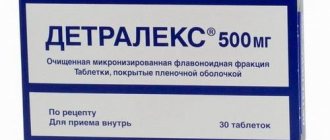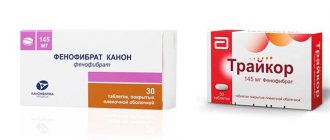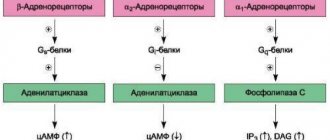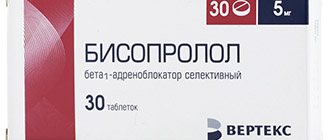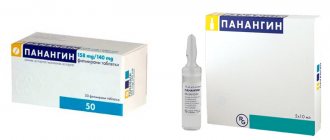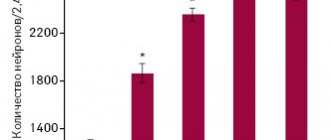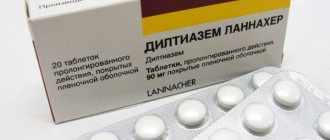In what cases is it best to use Validol, and in what cases is it best to use Nitroglycerin? As a rule, people do not always see the difference between these drugs. The effectiveness of Validol for heart disease is very doubtful; its pharmacological activity is weakly expressed, but there are practically no side effects. What is better - "Validol" or "Nitroglycerin" - for heart pain?
The second medicine is considered a more effective remedy for cardiovascular diseases. They differ from each other in activity, as well as in the range of indications and side effects.
When and what medicine is best to take
In what cases are Validol and Nitroglycerin taken? The first drug contains valerian ether and menthol. The medicine has a slight sedative effect and quickly dilates the coronary vessels.
What else does Validol help with? With it you can:
- Eliminate minor pain in the heart. Most people who suffer from chronic cardiac diseases keep Validol in their medicine cabinet as a first aid medicine.
- Calm down during hysteria and neurotic conditions.
It should be admitted that Validol is a very weak medicine; it is practically menthol lozenges.
What does Validol help with? This drug can eliminate pain near the heart, which is caused by vegetative-vascular dystonia, as well as neuroses, since it has a slight calming effect on the nervous system, and its vasodilating effect is too weak and occurs reflexively.
But “Nitroglycerin,” on the contrary, has proven itself well as a “reactive” medicine for patients who have developed acute ischemic heart pain. The medicine can eliminate unpleasant sensations in a short time and acts as a standard with which all modern means suitable for solving such problems are compared.
The therapeutic effect of nitroglycerin is that it sharply expands the capillaries, from which the heart itself is nourished. Thanks to this complex effect on the myocardium and surrounding vessels, it ensures durability and immediate therapeutic effect.
Instructions for use
Validol is taken sublingually. It must be consumed three times a day, regardless of meals. If the drug does not help cope with angina, the doctor replaces it with another drug. In case of an attack of neurosis, the tablet is dissolved once.
The medicine is sometimes prescribed to pregnant women in the first trimester. It helps to cope with toxicosis, flatulence, and gastrointestinal problems. The use of tablets should be supervised. It is necessary to monitor blood pressure and heart rate.
Risks of exceeding the dosage of Validol
During breastfeeding, the drug is not prescribed, since the effect is unknown - there is no data whether the drug substances pass into the milk of a nursing mother. Presumably the resulting effect is lower than the risk to the newborn.
Nitroglycerin is also taken sublingually. It is drunk when there is cardiac pain or before stress, which can cause angina. Take one or two tablets. It is necessary to take no more than one tablet at a time due to the high dosage of the drug.
In case of acute myocardial failure, it is allowed to take two tablets with an interval of 10 minutes. You must take the medicine under the supervision of a medical specialist.
Is it possible to use Nitroglycerin and Validol at the same time? Many doctors answer this question in the affirmative. Menthol, which Validol contains, alleviates some of the side effects of Nitroglycerin. It helps relieve nitrate migraines that the medication sometimes causes.
In addition, when there is pain in the heart, a person has a fear of death, which intensifies the pain and worsens the condition. It is in such cases that cardiologists recommend the simultaneous use of two medications - one will soothe, and the second will dilate the coronary arteries and improve blood flow to the heart.
The main thing with simultaneous use is compliance with dosages. If Nitroglycerin does not alleviate the condition, you should call an ambulance to avoid serious consequences.
How to take Validol
Validol tablets are recommended for patients to dissolve under the tongue. You can take the medication regardless of meals, three times a day. The duration of therapy is determined by a specialist individually for each patient.
If no positive pharmacological effect is observed within 10-15 minutes after resorption of the drug, the patient should consult a doctor to prescribe another medication. If you feel sick while riding in public transport, it is enough to take Validol once.
Properties and mechanism of action of Validol
Validol is a vasodilator and sedative. The mechanism of action is associated with the effect on nerve endings. The tablet is placed under the tongue and dissolves. Since there are many blood vessels in this area, the substances enter the blood within five minutes after resorption.
Characteristics of the drug
The properties of the medicine are close to menthol. When receptors are irritated, endorphins, enkephalins, peptides, and dynorphins are released, which help regulate pain and the permeability of blood vessel walls.
Additionally, other compounds are released, for example, kinins, histamine. All of them affect the body by dilating blood vessels. Since it contains valerian, Validol has a calming effect on the nervous system and normalizes sleep.
Use of Nitroglycerin
To prevent complications, you must use the drug as prescribed by your doctor. According to the instructions for use for Nitroglycerin tablets, the dosage is 1 piece.
It is kept in the oral cavity until completely dissolved, without swallowing. Nitroglycerin should be used immediately when the first symptoms of an angina attack occur or before intended physical exercise.
In case of stable angina pectoris, the effect may also occur with a lower dosage; in this situation, the remainder of the tablet that has not dissolved should be spat out. In most cases, improvement is noted within the first 3 minutes of taking Nitroglycerin. If the angina attack is not eliminated within five minutes, you need to take 1 more tablet.
If there is no pharmacological effect after using 2 Nitroglycerin tablets, you should immediately consult a doctor.
The spray is administered on or under the tongue, preferably in a sitting position, while holding your breath. After injection, the medicine is not swallowed immediately, but is held for a few seconds.
To avoid complications, Nitroglycerin must be taken as prescribed by a doctor. When the first symptoms of angina occur, 1-2 dosages of the spray are administered.
If necessary, another injection is likely to be administered, but no more than three doses within 15 minutes. If after using 3 doses within this time the condition does not improve, it is important to consult a doctor. The maximum single concentration is 3 doses of spray.
If the prescription for the use of “Nitroglycerin” is considered to be the prevention of angina pectoris, the medication is administered 1 dose ten minutes before possible exercise or stress. It is not necessary to shake the spray before use.
Is it possible to take Validol and Nitroglycerin together?
Yes, this is allowed. Although Validol dilates capillaries and has a sedative effect on the body, it is useless for angina pectoris. But it is still not recommended to immediately abandon its use. Since during an angina attack the patient not only experiences chest pain, but also fear of death.
Validol will help eliminate this fear. Nitroglycerin can quickly neutralize a heart attack, but it provokes nausea and headaches, which can also be removed with Validol. Therefore, in this situation, it is best to use these medications at the same time.
Properties and mechanism of action of Nitroglycerin
Nitroglycerin is one of the most effective remedies for angina attacks. When dissolved in the sublingual area, it acts after a few minutes. It has an analgesic effect in angina pectoris and affects blood vessels, dilating them. The duration of exposure is a little longer than an hour.
By expanding the walls of the coronary vessels, it promotes a rush of blood to the heart, improves its nutrition and oxygen saturation, which makes it possible to stop an attack. In small doses and with long-term use, it steadily expands the lumen in blood vessels.
What are the differences between medications
What is the difference between Validol and Nitroglycerin? Both medications have been known to everyone for a long time.
But despite this, there will always be those people for whom the question of what is the difference between “Validol” and “Nitroglycerin” puts them in a difficult position. And the difference is significant, starting from the purpose, dose, ending with adverse reactions.
Similarities and differences between the two drugs
Both drugs are used for pain in the heart. What is the difference between Nitroglycerin and Validol? The difference lies in the mechanism of action:
- Validol - affects nerve receptors. It is recognized as a harmless remedy. It has a beneficial effect on blood vessels, increasing the clearance between the walls. Validol can relieve mild pain in the heart area, which is associated with vegetative-vascular dystonia or occurs due to neuroses.
Mechanism of antianginal action of nitroglycerin - Nitroglycerin - relieves attacks of angina and left ventricular failure. Dilates venous vessels, coronary arteries and cerebral vessels. The drug also reduces severe pain.
When are medications prescribed?
When to take Nitroglycerin and when to take Validol? Indications for use vary. Here are the situations in which it is necessary to use Validol:
- Stable mild form of angina (attacks of sudden chest pain that develop as a result of an acute lack of blood supply to the heart muscle).
- Painful sensations of various etiologies.
- Insomnia (a pathological condition in which the process of onset and maintenance of sleep is disrupted).
- Neurotic disorders (a collective name for a group of functional psychogenic reversible disorders that tend to be protracted).
- Kinetosis (motion sickness disease develops in people when riding on ships, cars, planes, and less often on a train).
- Migraine (the primary form of headache, the symptoms of which are periodic attacks of moderate to severe headaches).
- Hysterical disorder (personality disorder characterized by an inexhaustible need for attention, unstable self-esteem, overestimation of the importance of gender, feigned behavior).
- Panic attack (an anxiety attack accompanied by unreasonable fear, combined with various symptoms).
- Nausea.
What is better - "Validol" or "Nitroglycerin"? The second medication is considered an active ingredient for many nitro drugs:
- For acute angina pain, it can be used in the form of sublingual tablets, as well as a spray or intravenously.
- In acute myocardial infarction (a focus of ischemic necrosis of the myocardium, which occurs after an acute violation of the coronary circulation).
- Myocardial insufficiency (impaired functioning of the heart muscle).
- Hypertensive crisis (a serious illness that is triggered by an increase in blood pressure, manifested clinically and requiring an immediate decrease in blood pressure to limit target organ damage).
Which is better, “Validol” or “Nitroglycerin”, interests many people.
Adverse reactions of Validol
The drug does not contain monosaccharides, so it can be given to people who suffer from diabetes. Patients, as a rule, tolerate it well, sometimes there are negative effects:
- Angioedema (violation of vascular tone and blood circulation in a separate place or in the entire circulatory system at once).
- Dizziness.
- Nettle rash.
- Epigastric pain.
- Vomit.
All of the above symptoms do not require treatment and go away on their own in a short time.
Side effects
Validol tablets do not contain monosaccharides, so they can be used by patients with diabetes. Although the medicine is harmless, some side effects may occur:
- vertigo syndrome;
- angioedema;
- vomit;
- pain syndrome in the epigastrium;
- hives.
Side effects of Validol
All these phenomena do not cause great concern. After a short period they pass by themselves.
Nitroglycerin has the following side effects:
- vertigo;
- weakness;
- nausea;
- vomit;
- allergic skin reaction;
- severe drop in blood pressure with increased angina symptoms;
- fainting;
- cardiac arrhythmia.
After first use or increasing dosage, people with heart disease may experience persistent angina.
Negative effects of Nitroglycerin
But “Nitroglycerin” has more side effects, but it also acts somewhat stronger than “Validol”. Negative effects that the drug can provoke:
- Dizziness.
- Redness.
- Vomiting.
- Cardiac arrhythmia (a pathological condition in which disturbances in the frequency, rhythm and sequence of excitation and contraction of the heart occur).
- Nausea.
- Syncope (an attack of short-term loss of consciousness caused by a temporary disruption of cerebral blood flow.).
- Skin allergic manifestations.
- A sharp drop in blood pressure with increased signs of angina.
These negative phenomena are provoked by a sharp expansion of the cerebral capillaries, which causes a lot of blood to flow to the brain. But the effect of Nitroglycerin is short-lived, and when it ends, side reactions also disappear.
Which remedy is more effective?
Validol is a drug with questionable effectiveness, unexpressed activity and no side effects. Helps only with non-dangerous manifestations of angina pectoris. In difficult situations, his effectiveness is lacking. Recently, many doctors in developed countries compare Validol with an ordinary mint candy, which in no way can help a person with a heart attack.
Nitroglycerin copes with intense pain in the heart of an ischemic nature. It can quickly and effectively relieve an attack of angina pectoris and alleviate other cardiovascular problems.
Contraindications to Nitroglycerin
The use of the drug is prohibited for the following pathological conditions, which include:
- Arterial hypotension (a long-term condition of the body characterized by low blood pressure and various autonomic disorders: decreased body temperature, sweating of the feet and palms, pallor).
- Constrictive pericarditis (fibrous thickening of the pericardial layers and obliteration of the pericardial cavity, leading to compression of the heart and impaired diastolic filling of the ventricles).
- Compression of the heart.
- Hypertrophic cardiomyopathy (primary isolated myocardial damage, characterized by hypertrophy of the ventricles (usually the left) with a reduced or normal volume of their cavities).
- Increased intracranial pressure.
- Angle-closure glaucoma with increased intraocular pressure (a pathological process that leads to injury to the optic nerve).
Before starting Nitroglycerin therapy, it is important to ensure that there are no contraindications.
Comparison of "Validol" and "Nitroglycerin" during pregnancy and breastfeeding
The drug "Validol" is sometimes recommended to women during an interesting situation in the first three months to alleviate early toxicosis. According to the responses of expectant mothers, the tablets are really good at neutralizing nausea, as well as increased salivation and preventing increased gas formation.
The use of medication in pregnant women should only be done under the supervision of a doctor, and it is important to monitor pulse and blood pressure. During lactation, you can use Validol, but only under strict medical indications.
Nitroglycerin can be used during pregnancy. But this is only in a situation where there will be more benefit from it for the unborn child than harm. While using it, you must stop breastfeeding. Therefore, it will not work to say which is better - “Validol” or “Nitroglycerin” - during pregnancy.
